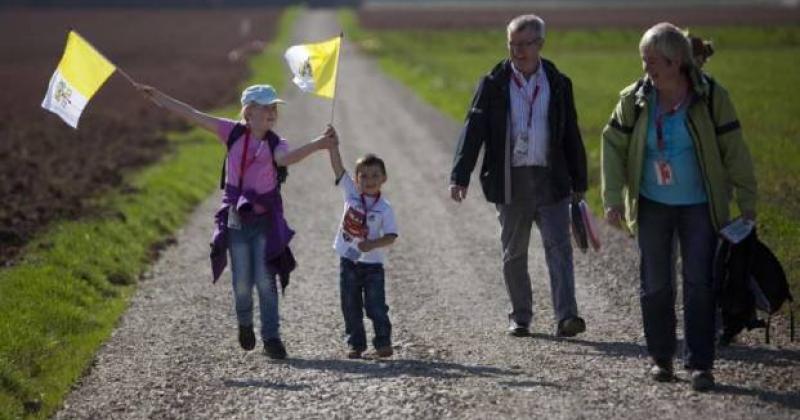Francis took part in the International Interreligious Colloquium on the Complementarity of Man and Woman promoted by the Congregation for the Doctrine of the Faith.
Pope Francis will be in Philadelphia in September 2015 to participate in the 8th World Meeting of Families. He announced his decision today at the end of this morning’s address to participants of the International Interreligious Colloquium on Complementarity between Man and Woman in the Synod Hall. The meetings has been organised by Congregation for the Doctrine of the Faith, in collaboration with the Pontifical Councils for the Family, for Interreligious Dialogue and for Promoting Christian Unity. “It is becoming increasingly apparent that the decline of the marriage culture is associated with increased poverty and a host of other social ills, disproportionately affecting women, children and the elderly. It is always they who suffer the most in this crisis.”
Speaking about “complementarity”, Francis said that reflecting on it “involves meditation on the dynamic harmonies that are at the centre of Creation. This is the keyword: harmony. The Creator created all these complementarities so that the Holy Spirit, maker of harmony, can create this harmony.” The Pope explained that in this context, the complementarity between man and woman, must not be confused “with the simplistic idea that all the roles and relations of the two sexes are fixed in a single, static pattern. Complementarity will take many forms as each man and woman brings his or her distinctive contributions to their marriage and to the formation of their children.”
The Pope reminded his audience that marriage and the family are facing a crisis today. “We now live in a culture of the temporary, in which more and more people are simply giving up on marriage as a public commitment. This revolution in manners and morals has often flown the flag of freedom, but in fact it has brought spiritual and material devastation to countless human beings, especially the poorest and most vulnerable.”
"The crisis in the family has produced crisis of human ecology, for social environments, like natural environments, need protection. And although the human race has come to understand the need to address conditions that menace our natural environments, we have been slower to recognize that our fragile social environments are under threat as well, slower in our culture, and also in our Catholic Church. It is therefore essential that we foster a new human ecology and advance it,” Francis said.
Francis insisted on the importance of “the fundamental pillars that govern a nation: its non-material goods. The family is the foundation of co-existence and a guarantee against social fragmentation. Children have a right to grow up in a family with a father and a mother capable of creating a suitable environment for the child's development and emotional maturity.” Francis thanked participants of the Colloquium for the emphasis placed on the benefits of marriage for children, spouses and society in general.
The Pope went on to underline another important aspect of marriage: “that permanent commitment to solidarity, fidelity, and fruitful love responds to the deepest longings of the human heart. Let us bear in mind especially the young people, who represent our future. It is important that they do not give themselves over to the poisonous mentality of the temporary, but rather be revolutionaries with the courage to seek true and lasting love, going against the common pattern: this must be done.”
Finally, Francis urged, “Let us not fall into the trap of being qualified by ideological concepts. Family is an anthropological fact - a socially and culturally related fact. We cannot qualify it with concepts of an ideological nature, that are relevant only in a single moment of history, and then pass by. We can't speak today of a conservative notion of family or a progressive notion of family: Family is family! It can't be qualified by ideological notions. Family has a strength of its own [per se].”
